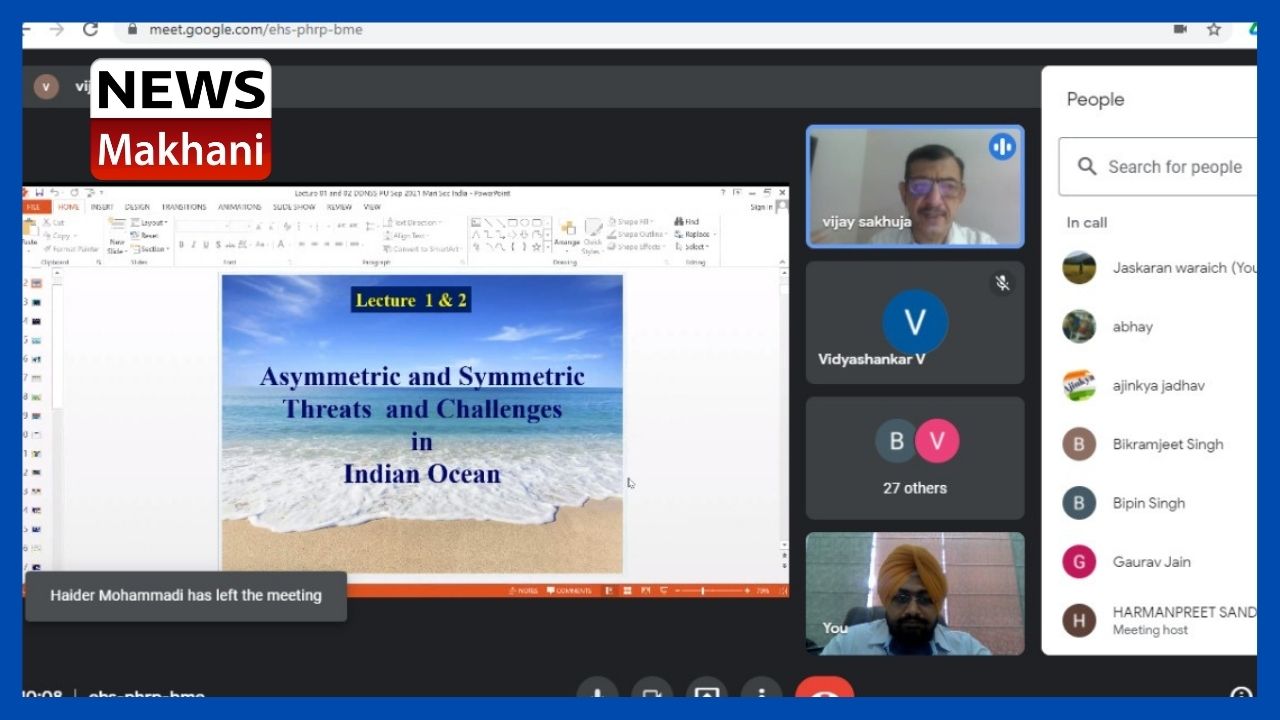Chandigarh September 17, 2021
The Department of Defence and National Security Studies(DDNSS), Panjab University, Chandigarh organised a special lecture on the topic “Asymmetric and Symmetric threats and challenges in the Indian Ocean” by the eminent researcher, writer, academician, administrator and ex-naval officer Dr. Vijay Sakhuja today through online mode. He was welcomed and introduced to the audience by the Chairman of the Department Dr. Jaskaran Waraich.
Dr. Vijay Sakhuja in his lecture explained the importance of the Oceans and other water bodies for the humanity. He moved on to highlight the significance of the Maritime security. He further pointed out various security challenges in the littoral regions and to the countries from Non-traditional Security threats in the Indian Ocean. Dr. Sakhuja broadly categorised these threats into four that is, Human Induced, Nature Driven, Manmade, and State Driven ranging from Piracy, human trafficking, Drugs and Arms smuggling, Tsunamis, cyclones, climate change and maritime environment degradation, WMD proliferation to Cyber Attacks.
Dr. Sakhuja talked about the ongoing Great power competition in the Indian Ocean due to presence of western powers like US, France, and UK along with Asian powers of China, Japan and India. He pointed out that this great powers rivalry led to the construction of corridors, routes and ports in the littorals of the Indian Ocean by great powers. These infrastructure projects which are geo-strategically important are undertaken at high pace particularly by Chinese like Maritime Silk Road, China Pakistan Economic Corridor, and China Myanmar Economic Corridor. He further discussed about the crucial Indo-Japan Freedom Corridor, International North South Transport Corridor and touched upon other maritime infrastructure projects. He concluded that the US and its allies are increasing their presence in the Indian Ocean to counter increasing influence of China in this region.
The lecture was attended by the various faculty members, serving and retired officers from the armed forces pursuing various courses in the department, research scholars and students. The lecture was followed by a questions and answers session with the audience.

 हिंदी
हिंदी






